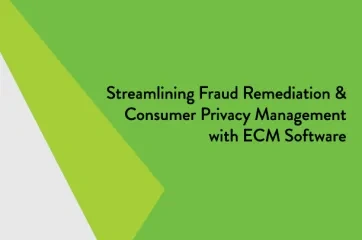Tickler Reports
A tickler report provides bank and credit union employees with a list of expiring documents that require action. Bankers can also generate lists of items that have already passed the expiration or due date. Tickler reports are essential for managing risk and serve as helpful reminders to:
- Lenders
- Loan assistants
- Compliance officers
- Insurance clerks
Staying Ahead of Expiration Dates
A tickler report can help a bank or credit union identify mistakes, oversights, and overdue items that need to be resolved. Some tickler systems allow users at financial institutions to run reports and flag items that will expire within a certain time frame (e.g., the next 30, 60, or 90 days). This is sometimes referred to as an exception “grace period,” which gives employees time to request and receive updated documents from customers and members.
One best practice is to regard tickler reports as an opportunity to stay ahead of problems and work to resolve them sooner, rather than later. For example, employees may run tickler reports that show:
- Insurance policies expiring in the next 30 days
- Financial statements/tax returns expiring in the next 45 days
- UCC financing statements expiring in the next 90 days
Generating Tickler Reports
Financial institutions produce tickler reports in various ways. This could be done by using a spreadsheet, an in-house database, or a document management system, such as AccuAccount. Document management tools can make it easier for bank employees to run tickler reports for specific expiration date ranges and drill down by lender, branch, category, or exception type.
Tickler Report Resources
Looking for more information about ticklers and exception reporting? Be sure to check out our extensive resource library with free spreadsheets, whitepapers, and eBooks.
Browse our banking definitions page for more terminology.














